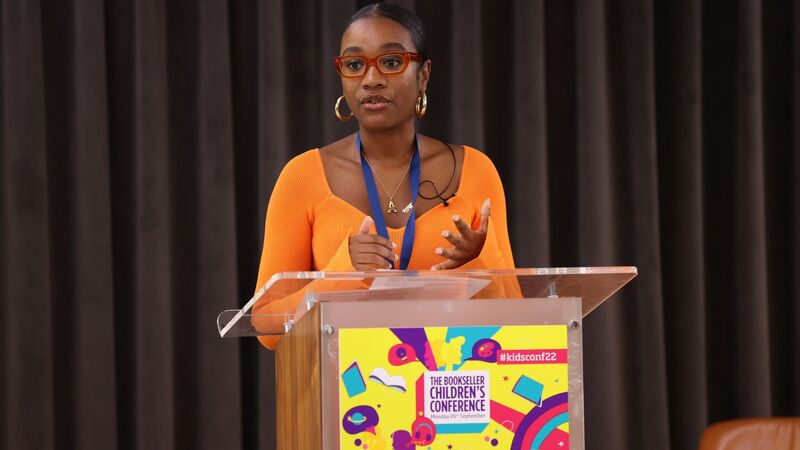You are viewing your 1 free article this month. Login to read more articles.
Q&A: Darren Chetty, Grug Muse, Hanan Issa & Iestyn Tyne, editors of Welsh (Plural)
The four editors of Welsh (Plural), a new anthology of writing about Wales and Welshness, discuss the collection.
Welsh (Plural) was sparked by conversations three of you editors had at Hay Festival in 2019. What was it that spurred you to action?
GM: It was a case of the right people in the right place at the right time. We wanted to work together, and our Writers at Work residency at the Hay Festival helped demystify the process of putting a book together. So instead of being one of those “What if?” conversations, it became “What next?”.
DC: I think we had a shared sense that Welsh writing is often not as visible as, say, Scottish and Irish writing—something that Gary Raymond addresses in his essay, “Being a Welsh Novelist: A Choose Your Destiny Adventure Game”. And also that there was the scope, and need, to produce something that would broaden notions of Welshness beyond what we often encounter in literature and popular culture.
In your introduction to the collection, you state that Welsh (Plural) offers new answers to some old questions concerning Welsh identity. Why are new answers needed?
GM: In part we were referencing the questions being discussed by Welsh thinkers like Raymond Williams, Gwyn Alf Williams and J R Jones in the 1960s, ‘70s and ‘80s. Those writers were working in the context of the language rights campaigns, the Thatcher years, and the failed 1979 Wales devolution referendum. But today, we are working in a very different political landscape and so we wanted to bring those historic discussions into the context of 2022.
Although Wales as a whole voted to leave the EU in the 2016 referendum, a political fault line was exposed between west Wales, Cardiff and the rest of the country. The growing Welsh independence movement has battled with questions about who Welsh independence is for, and what a “broad coalition” between the left and right might mean. Meanwhile, global Black Lives Matter movements have brought discussions on race and identity into the mainstream and highlighted the work racial justice activists have been doing for decades. And devolution is now reaching the age of maturity; a generation has grown up knowing nothing but a devolved Welsh government.
The anthology strives to step beyond “the clichés and binaries that so often shape thinking about Wales and Welshness”—what is it that has made Wales susceptible to such narrow ways of thinking?
GM: The lack of a truly national media and discourse. The lack of historical national institutions compared to Ireland and Scotland. The A470. The Beeching rail cuts. Our lumpy geography. Thatcher.
DC: I think that Wales having such a long history can lead to people spending a lot of time looking back at the past and it’s easy to be seduced by nostalgia. The three Cs of castles, coal and choirs are all important to thinking about present-day Welshness, but they are far from the whole story.
The essays in the collection are wonderfully diverse, not only in terms of the contributors. What were your aspirations for the scope of the book?
HI: As an editing team, we each write in different genres—poetry, fiction, non-fiction etc—and we had all been involved in previous anthologies, including The Good Immigrant and Just So You Know. Many of the contributors were keen to experiment with the essay form and we saw that variety of form as a strength. We hope this gives the book an appeal that is wider than the usual readership of essay anthologies. Accessibility was a key focus for us—above all, the essays needed to work as engaging and original pieces of writing.
IT: We also hoped to show that writers, and not necessarily “political” writers, have a role to play in discussions about how the future might look. We created a space which enabled writers to focus on their dreams and aspirations for Wales, without necessarily getting too bogged down in the minutiae of policy analysis.
How did you collaborate as editors on the book and select the contributors?
GM: When we were working on this book, one of us lived in London, the other in Cardiff, and two of us near Caernarfon. So we were probably ahead of the curve in working on Zoom—in fact, we started on Skype. But in terms of editing, we knew that we all had personal strengths and biases, and we were also aware that four people is a big editing team. We wanted the book to remain cohesive and not split into four different books. So we split the essays,with each getting two editors.
DC: This enabled us to ensure that every essay would be edited by a Welsh speaker (Grug or Iestyn) and by a racially minoritised person (Hanan or me). And the four of us were in dialogue throughout the process via WhatsApp, too.
Who do you hope will read the collection, and what do you hope for it in terms of impact?
HI: Everyone with even a passing interest in Wales! Personally, I want the book to spark new conversations about the future of Wales and really start to challenge the stereotype-heavy perceptions of what Welshness can look like.
IT: Our contributor Rabab Ghazoul recently referred to the “nimbleness” available to a small country like Wales in the face of great challenges and change. I would love for this volume to find an audience in other small nations.
DC: I’d love for the book to be widely read in England too—and for people to then be motivated to seek out other writing from the contributors.
Welsh (Plural): Essays on the Future of Wales was published by Repeater Books in March 2022 (paperback, £12.99, 9781913462666).













